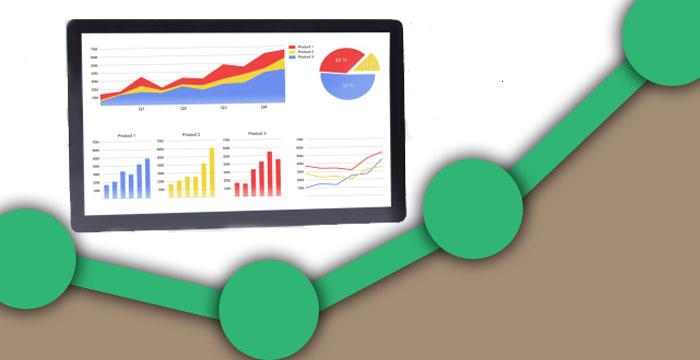If you’ve invested money in optimizing your small business website for search engines, then you’ll need some measurements over time to gauge your organic SEO effectiveness.
If you’re doing e-commerce you can measure success by the number of online sales you’re getting, but what if you’re a small service-based business such as an accountant, a plumber, or home care provider?
In that case, I suggest looking at these metrics over time to determine if your SEO is working:
- Website Traffic and Analytics
- Keyword Rankings
- Actions taken on the website
- Inquiries/Prospects/Clients from the Website
1. Website Traffic and Analytics
For all my small business SEO clients, I recommend they install a website analytics package such as Google Analytics. Google Analytics is installed into the website code of every web page and has many reporting advantages over raw website traffic data.
Remember that your goal with SEO is to get the right traffic to your website as well as to get visitors to stay longer and take action. So, traffic volume itself is not the main Key Performance Indicator (KPI) to consider.
KEY PERFORMANCE INDICATORS TO WATCH FOR ORGANIC SEARCH TRAFFIC
- Average visits per day
- Average time per visit
- Pages per visit
- Keywords used to get to the site
- Where visitors come from – direct to site, search engines, other referring websites, social media, geographic location
Keep in mind that various factors can affect your analytics values. Sometimes work on your website will affect direct traffic. And online advertising campaigns can increase your referring traffic. Seasonal factors such as Summer, Holiday, and Winter trends can also affect website traffic and analytics.
2. Keyword Rankings
How a website ranks on search engines for specific keywords is just one metric to consider in SEO effectiveness. Because this is easy to measure and see, most people fixate on the rankings and ignore other factors.
However, keeping an eye on search engine rankings over time can identify how your SEO efforts are progressing. There are many online tools that can track keyword rankings across different search engines. One of my favorites is the Ahrefs. You can check up to 50 keyword phrases across Google, Bing, and Yahoo organic and local search profiles, and then run the reports monthly or whenever you want to. ZoomRank.com and others provide similar services.
A sudden drop in rankings can be disconcerting and should be investigated. Keep in mind that rankings tend to fluctuate over time even during the same day and from the same computer.
Before you begin tracking rankings of your keywords, you should perform a proper keyword analysis and optimize your website for those target keywords.
FACTORS THAT AFFECT KEYWORD SEARCH RANKINGS OVER TIME
- Changes in search engine ranking algorithms
- Searcher’s geographic location, date, and time
- Website redesign can positively or negatively affect rankings
- Website errors and broken links
- Content changes on website
- SEO of competing websites
3. Actions taken on the Website
Often you’ll have different actions that visitors can take on your website such as:
- Filling out a contact form
- Calling your business on the phone
- Emailing you from the website
- Signing up for your email newsletter
- Downloading a whitepaper
- Requesting a quote
- Buying a product
- Liking your Facebook page
- Clicking a link to your blog
- Inquire about your special offer
- And so on…
Tracking these actions over time can indicate how effective your website is. For small businesses, sometimes the actions taken can be very small, but they do indicate how people use your website. Create a spreadsheet to track the important actions on your website and identify the number of monthly actions taken for each item. Note any big increases or decreases and investigate the causes.
4. Inquiries, Prospects, and Clients from the Website
Do you track where your prospects and clients are coming from? Most small businesses do, but it is not always written down or tracked over time.
If you are going to spend money on optimizing your website, I suggest creating a tracking spreadsheet that shows monthly totals for prospects and clients referred from the web and other sources. If desired, you can also track revenue from each source each month.
Of course, note any big increases and decreases, investigate, and document. Did you do a Groupon offer? Was the change seasonal or affected by weather? Did you optimize your website or redesign it?
Tracking SEO Effectiveness over Time
Small business SEO can be very effective. However, in order to truly know how effective (or ineffective) your website is, you need to track certain metrics over time. How often is up to you. For most small businesses, I suggest a quarterly review, but monthly reviews are recommended for businesses that use the web and social media as primary marketing tools.
Do you track SEO effectiveness for your small business or your small business clients? If so, please share what tracking methods have worked for you in the comments below.

